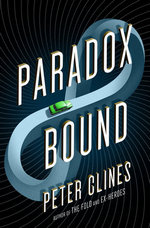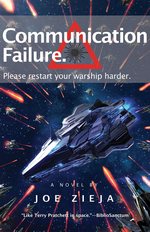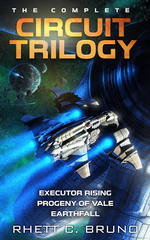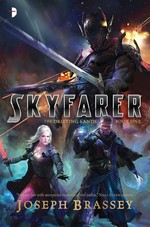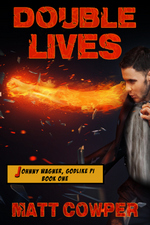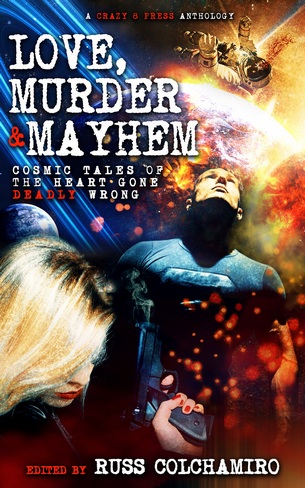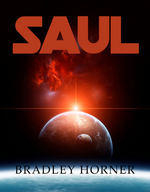A few weeks ago, I started to describe someone as one of the best characters I met this year. Which got me to thinking about and honing this list. I’m limiting myself to characters I met this year, otherwise I don’t think there’s be much room for anyone — Spenser, Hawk, Scout, Harry Dresden, Toby Daye, Ford Prefect etc. wouldn’t really allow anyone else to be talked about. These might not be my favorite people in their respective books (although most are), but they’re the best characters in terms of complexity, depth and story potential I doubt I’d like most of them in real life (and can’t imagine that any of them would enjoy me), but in novels? I can’t get enough of them.
(in alphabetical order by author)
- Aimee de Laurent from Skyfarer by Joseph Brassey (my post about the book)– she’s smart, she’s driven, she’s compassionate, she’s powerful, she’s fallible. She also flies around in a spaceship and does magic.
- Lori Anderson from Deep Down Dead by Steph Broadribb (my post about the book)– She’s more than Stephanie Plum without the Lucy Ricardo DNA. She’s a tough lady, a dedicated mom, and more. This bounty hunter will impress you with her guts, get your sympathy with her plight, and make you cheer as she bests her opponents (I should probably add “make you wince as she takes some brutal beatings).
- Ali Dalglish from In the Still by Jacqueline Chadwick (my post about the book)– Ali is a certified (and possibly certifiable) genius. She’s a criminal profiler working in Vancouver, BC after nearly a couple of decades away to raise her kids. But when a serial killer’s victim is found near her home, she’s drug back into the professional world she left with the investigation. She has the most creative swearing this side of Malcom Tucker, a fantastic and fast mind, a jaded look at life, and a sense of humor that’s sure to please. Early in In the Still, she asks questions of a police officer in a public forum and pretty much ruins the poor guy — it’s one of the best scenes I read all year. If you can read that far in the book and not become a Ali fan at that point, there’s something wrong with you. If I was ranking these, I’m pretty sure she’d be #1.
- Nick Mason from The Second Life of Nick Mason by Steve Hamilton (https://wp.me/p3z9AH-2NI)– A convicted non-violent criminal gets released early from an Illinois prison only to find himself in a different type of prison to work off his debt for being released, making him lose the “non-” in front of violent. He’s a great character, on the verge (always on the verge) of redemption and falling further.
- Dervan du Alöbar from A Plague of Giants by Kevin Hearne (my post about the book is forthcoming) — I could’ve named about half of the point-of-view characters from this book, but Dervan eked out a win. He’s a widower in mourning. A former soldier, wounded in duty, turned scholar, turned . . . well — that’s a long story. There’s something about his coming to grips with the new reality, his new vocation, his self-awareness and growth in his personal life just really clicked with me. He’s basically an unqualified fantasy hero, forced to step up and play a role in saving civilization (which actually describes many people in this book, but that’s for another day).
- Isaiah Quintabe from IQ by Joe Ide (my post about the book)– South-Central LA’s answer to Sherlock Holmes. We meet IQ early in his career and, via flashbacks, see him begin to develop the gifts that will make him the super-detective he’s destined to become. He’s such a great take on this character, I can’t believe no one beat Ide to the punch.
- Anci from Down Don’t Bother Me by Jason Miller (my post about the book) — yeah, her dad, Slim, is the series start and protagonist. He’s the one that goes trough all the hardship, the beatings, the investigative moves, not his 12-year-old daughter (who isn’t a young Veronica Mars clone, or Rae Spellman). But Anci is the heart and soul of the books — she’s why Slim goes to work in this field, and why he comes back. She’s smarter and wittier than any 12-year-old has any right to be (but believably so), she’s Slim’s conscience, and his reason for doing what he does.
- LeAnne Hogan from The Right Side by Spencer Quinn (my post about the book)– comes back from Afghanistan after near-fatal injuries, and isn’t fit for the civilian life she’s thrown back into. She begins to deal with her grief and anger while hunting for the child of a dead friend with the help of a stray dog. She’ll break your heart.
- John Rebus from Knots & Crosses by Ian Rankin (my post about the book)– Wow. How do I sum up Rebus? 2017 was the 30th anniversary of Rebus’ creation and the first year I read him. He’s a wonderful, complex character. He smokes too much, he drinks too much, he ignores the rules and regulations (and maybe even the laws) in his ongoing effort to forget about himself and his life by pouring himself into his work. Tenacious with a capital “T”, he may not be the smartest police detective you ever read, but he makes up for it through not giving up (although he’s pretty smart — especially when not drinking).
- Hob Ravani from Hunger Makes the Wolf by Alex Wells (my post about the book)– Tough does not begin to describe this biker. She’s all about surviving on this planet that’s not at all conducive to survival — from the environment, to the economics, to the politics — there’s just nothing on the planet that wants her or her fellow Ghost Wolves to survive. But somehow she does.





